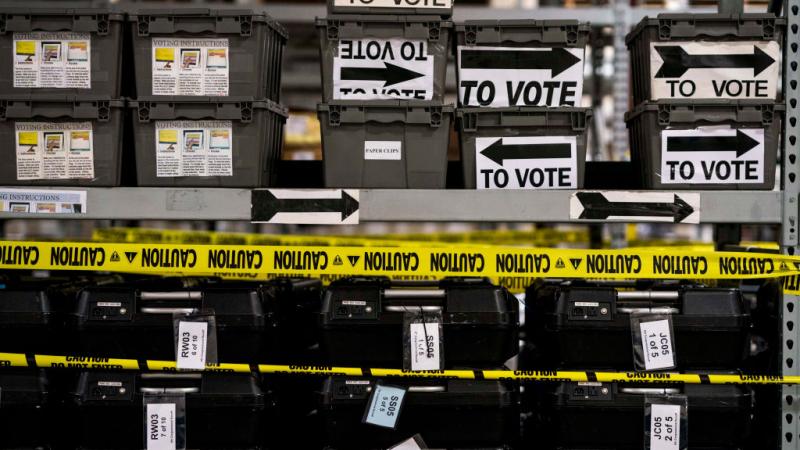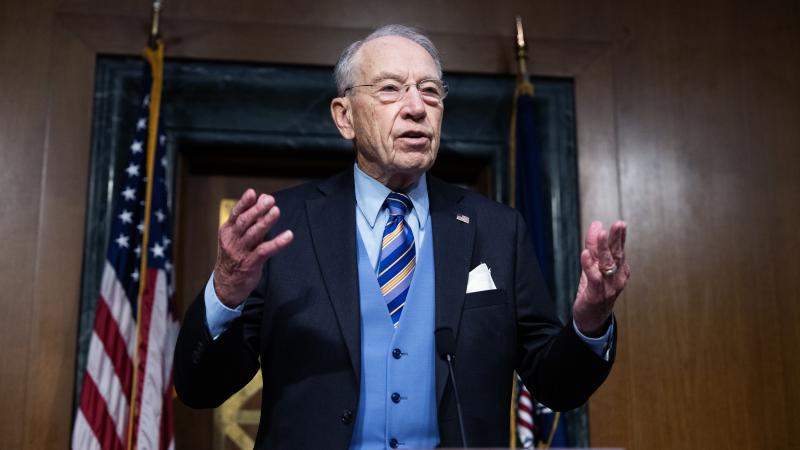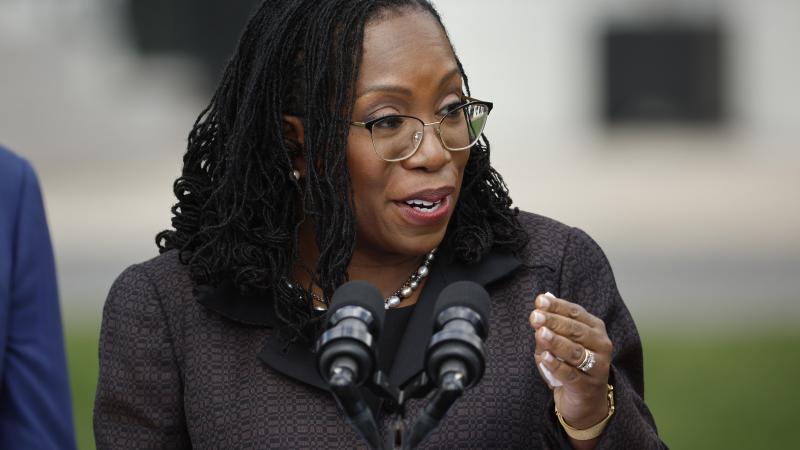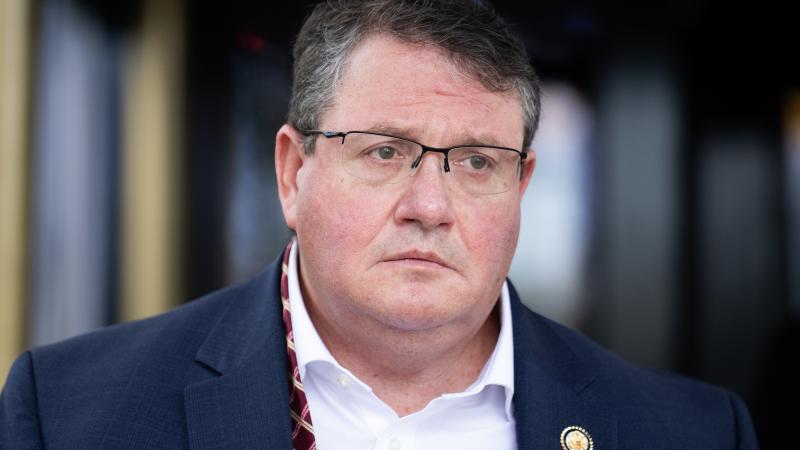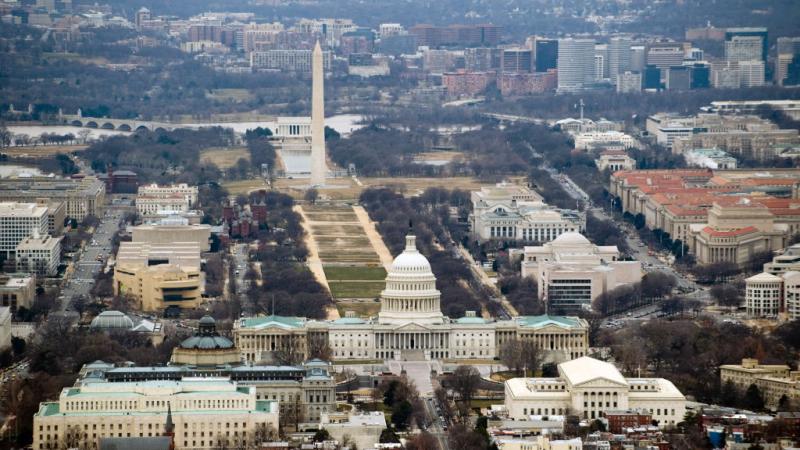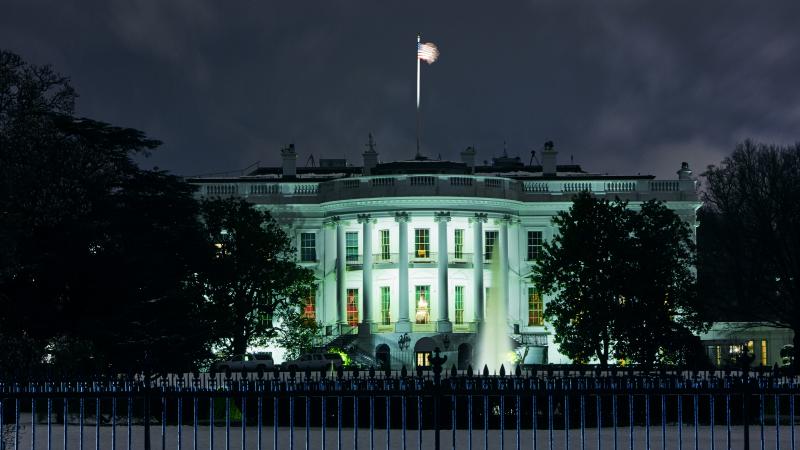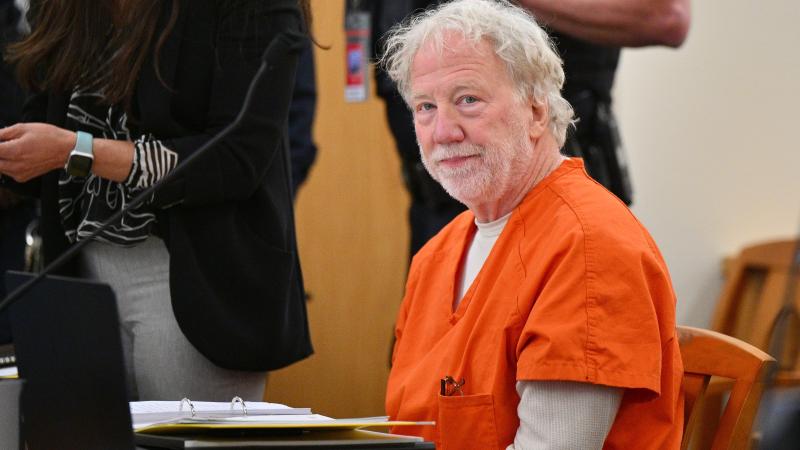Trump, tariff challengers each make arguments to SCOTUS in a case that could reshape admin strategy
The court’s decision could have a wide-ranging impact on the president’s trade policy and trade negotiations with hundreds of countries around the world, and that of future presidents as well.
The Supreme Court will hear oral arguments on Wednesday on a challenge against President Donald Trump’s emergency tariff authorities, which he has used to impose steep duties on other countries in pursuit of his sweeping trade agenda.
The court’s decision could have a wide-ranging impact on the president’s trade policy and trade negotiations with hundreds of countries around the world. If overturned, Trump’s emergency tariffs could eliminate many of the current duties the president has imposed since he took office.
Plaintiffs are challenging President Trump’s use of the International Emergency Economic Powers Act of 1977, known as IEEPA, to impose “trafficking” duties aimed at countries with a role in the fentanyl trade and “reciprocal” tariffs over his concern with the trade deficit.
The IEEPA provides that the president may “investigate, block during the pendency of an investigation, regulate, direct and compel, nullify, void, prevent or prohibit … importation or exportation” of transactions involving any foreign property during times of emergency.
After his inauguration earlier this year, Trump declared both the scourge of fentanyl and other drugs entering the country as well as persistent trade deficits with other countries as national emergencies, which according to the president’s lawyers, made available the powers under IEEPA to impose his sweeping tariff measures on most countries around the world. However, no president since the act’s passage has ever used it to justify imposing tariffs under these emergency conditions.
Two small business groups and twelve states sued the president shortly after the tariffs were imposed, arguing the IEEPA does not allow the president to impose such generalized tariffs.
In one of those cases, the U.S. Court of Appeals for the Federal Circuit ruled by a 7-4 margin in August that many of the president’s tariffs are illegal, but has allowed the president to continue enforcing tariffs while challenges are pending.
No predicting the outcome of this case
Now, the Supreme Court is set to consider the Federal Circuit Court of Appeals' ruling. However, unlike other recent landmark court decisions, how the nation’s high court will rule on whether President Trump has the authority under the act is largely uncertain.
“It’s very uncertain given the makeup of the court,” Georgetown Law professor Gregory Shaffer, who wrote an amicus brief in favor of the lower court ruling on the president’s emergency tariff authority, told the New York Post.
“It could be 50-50,” he said. “There are some justices, such as Justice [Neil] Gorsuch, who have earlier expressed concerns about Congress delegating its powers to the president.”
Which tariffs will be at risk or remain in place?
If the Supreme Court agrees with the lower court rulings on the president’s tariff powers under IEEPA, the Trump administration would be required to reverse many of the duties it has imposed since Liberation Day tariffs were announced earlier this year.
It would apply to the series of April executive orders that imposed the 10% baseline tariff on imported goods across the board and almost all “reciprocal” tariffs that the president imposed to target the persistent trade deficits. A ruling against the administration would also reverse the president’s tariffs on Chinese, Mexican, and Canadian goods to encourage them to crack down on illegal fentanyl trafficking.
Since imposing the wide-ranging tariffs earlier this year, Trump has signed trade deals with 10 countries and the European Union. Many of those deals include the maintenance of a baseline tariff on foreign goods, and it is not immediately clear how a reversal of the president’s ability to impose that baseline tariff will affect the agreements.
Trump admin: Tariffs are vital for national security
President Trump and his administration have argued that reversing these tariffs would interfere with the president’s constitutional duty to conduct U.S. foreign policy and warned it would damage national security.
Trade, foreign policy, economic policy national security all intertwined
"If allowed to stand, this Decision would literally destroy the United States of America," President Trump posted to Truth Social following the lower court’s ruling in August. Attorney General Pam Bondi vowed that the administration would appeal the ruling to the Supreme Court, saying it "undermines the United States on the world stage" and is "interfering with the President's vital and constitutionally central role in foreign policy."
Alex Gray, former National Security Council chief of staff and deputy assistant to the president during the first Trump administration, said the administration will likely argue that if the courts overturned the tariff powers it would be dangerous to U.S. national security.
“This is all about foreign policy. This isn’t 1789 where you can clearly delineate between trade policy, economic policy, national security policy and defense policy. These things are all completely interconnected,” Gray told Politico. “To diminish the tools he has to do that is really dangerous.”
Solicitor General D. John Sauer wrote in a filing to the Supreme Court that the administration views the IEEPA as granting the president tariff authority because it allows the chief executive to “regulate…importation.” He also stressed that the tariffs are essential to the president’s exercise of his constitutional powers over both foreign affairs and national security.
“President Trump’s IEEPA tariffs are plainly lawful. Congress has long granted the President broad authority to employ tariffs to address emergencies. IEEPA continues that tradition by expressly authorizing the President to 'regulate [...] importation' of foreign goods to address declared national emergencies,” Sauer wrote in the filing.
Trump administration readies other options
The administration views the president’s ability to impose tariffs as central to its foreign policy. So, though it will watch for the court’s decision in this case, the administration is already exploring the alternative powers under which the president can maintain his strategic tariffs.
“They’re aware there are a number of different statutes they can use to recoup the tariff authority,” said Everett Eissenstat, deputy director of the White House’s National Economic Council in Trump’s first term, per Politico. “There’s a lot of tools there that they could go to to make up that tariff revenue.”
Senior White House trade adviser Peter Navarro, for example, has said that President Trump can turn to other legal authorities, like Section 301 of the Trade Act of 1974, to put in place new tariffs. Trump previously used Section 301 authority to impose tariffs on China during his first term, which were maintained by President Joe Biden’s administration.
There are several other authorities that the administration can use, but they suffer from shortcomings, like time limits and slow implementation due to requirements for an investigation by a government agency.
“They’re narrower,” Shaffer told the New York Post. “Those other statutes don’t permit him to adjust tariffs worldwide across all tariff lines. That’s the reason why he has chosen IEEPA.”
Bessent: Treasury refunds would be “terrible”
Treasury Secretary Scott Bessent has warned that overturning the president’s emergency tariff authority would be dangerous for another reason: emptying the Treasury to repay the collected duties.
“We would have to give a refund on about half the tariffs, which would be terrible for the Treasury,” Bessent said on NBC’s “Meet the Press” last month. “If the court says it, we’d have to do it.”
Bessent estimated earlier this year that the U.S. government could take in $300 billion in tariff revenue by the end of 2025, which the court could order the Treasury to return to those who paid the duties if the emergency authorities are overturned.
The Facts Inside Our Reporter's Notebook
Links
- IEEPA provides
- ruled by a 7-4 margin
- told the New York Post
- required to reverse many of the duties
- 10 countries and the European Union
- posted to Truth Social
- vowed that the administration would appeal the ruling
- Gray told Politico
- wrote in a filing
- Sauer wrote in the filing
- said Everett Eissenstat
- previously used Section 301 authority
- Shaffer told the New York Post
- would be dangerous




